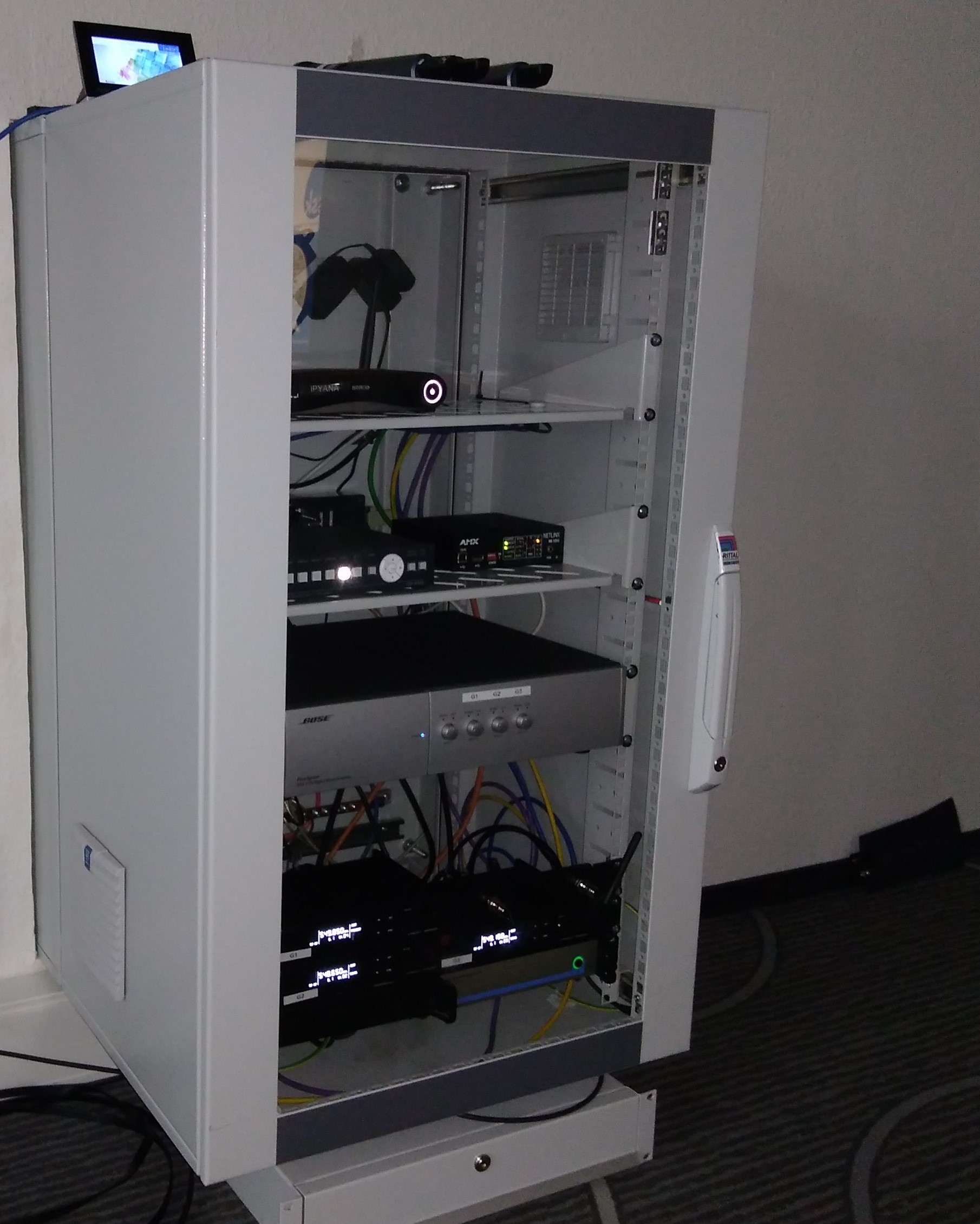This phrase has been familiar to many for decades now. In my work, I don’t need quite that much power, but power runs through everything that I manage. Over the past several months, several of the challenges facing me center on power. Or the lack of it.
When a device needs consistent, reliable power, it often gets connected to an uninterruptible power supply, or UPS. Servers and core network equipment like routers and switches fall in this category. Last year, the UPS connected to our main servers developed a fault and quit. Its failure didn’t do any lasting harm, but it was not a happy situation. This year, I acquired and installed the replacement.
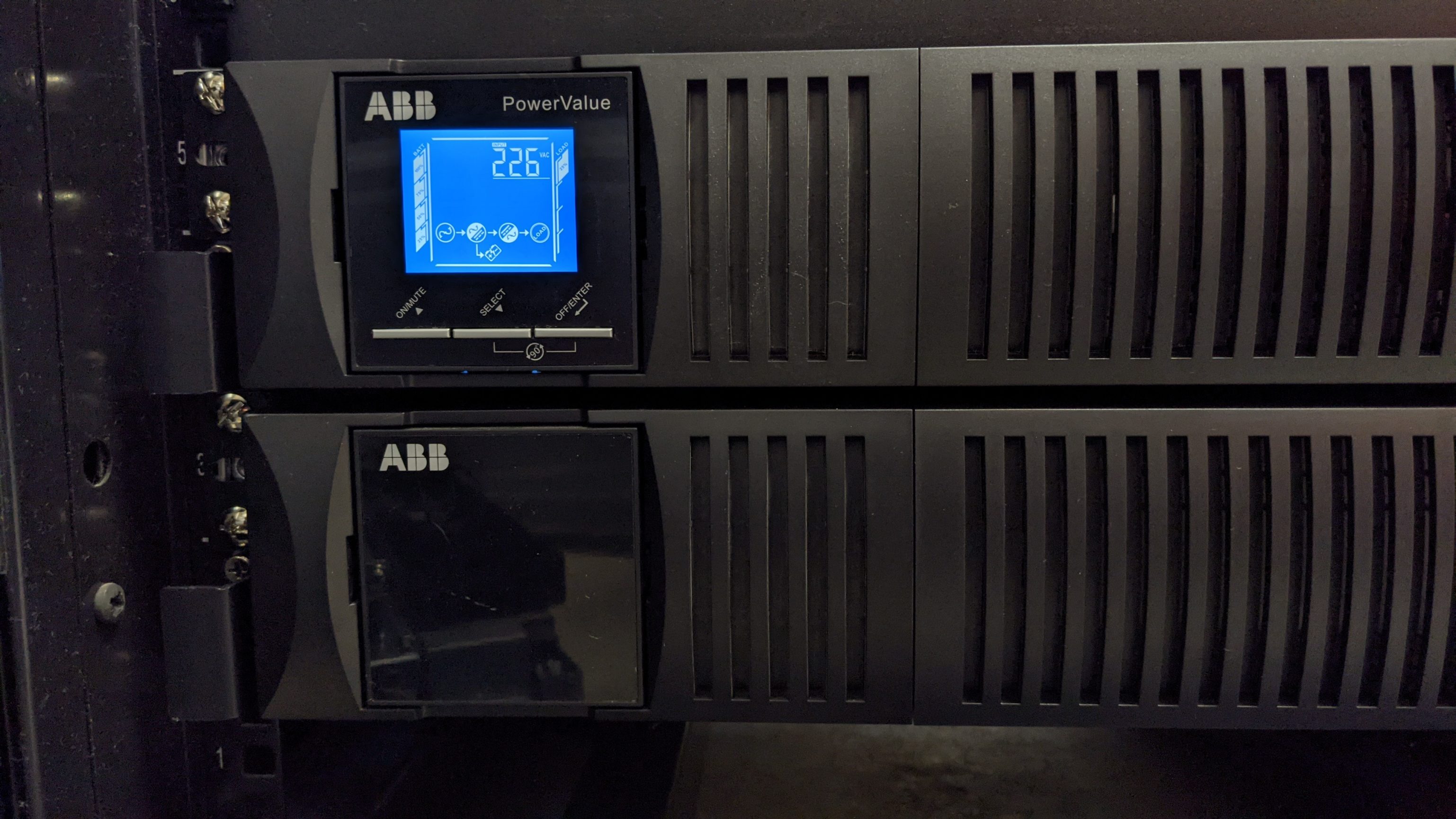
As life would have it, at just about the time I had this UPS running, the one connected to our backup server and the internet connections also failed. It, too, needed to be replaced. After each failure, I was thankful that we have very few power outages here in this part of Germany and that I didn’t have to worry too much about not having immediate replacements. The second unit’s delivery was delayed a few weeks by the global supply chain problems.
Around the Wycliffe and Karimu campus, one can see the discus-shaped Wi-Fi access points that I installed for staff and guests. As I mentioned in the linked post, the devices get both data and power from the switches to which they’re connected. Our desk phones work the same way. Well, most of them do. Some of them are connected to a switch that I haven’t been able to replace and which can’t provide power.
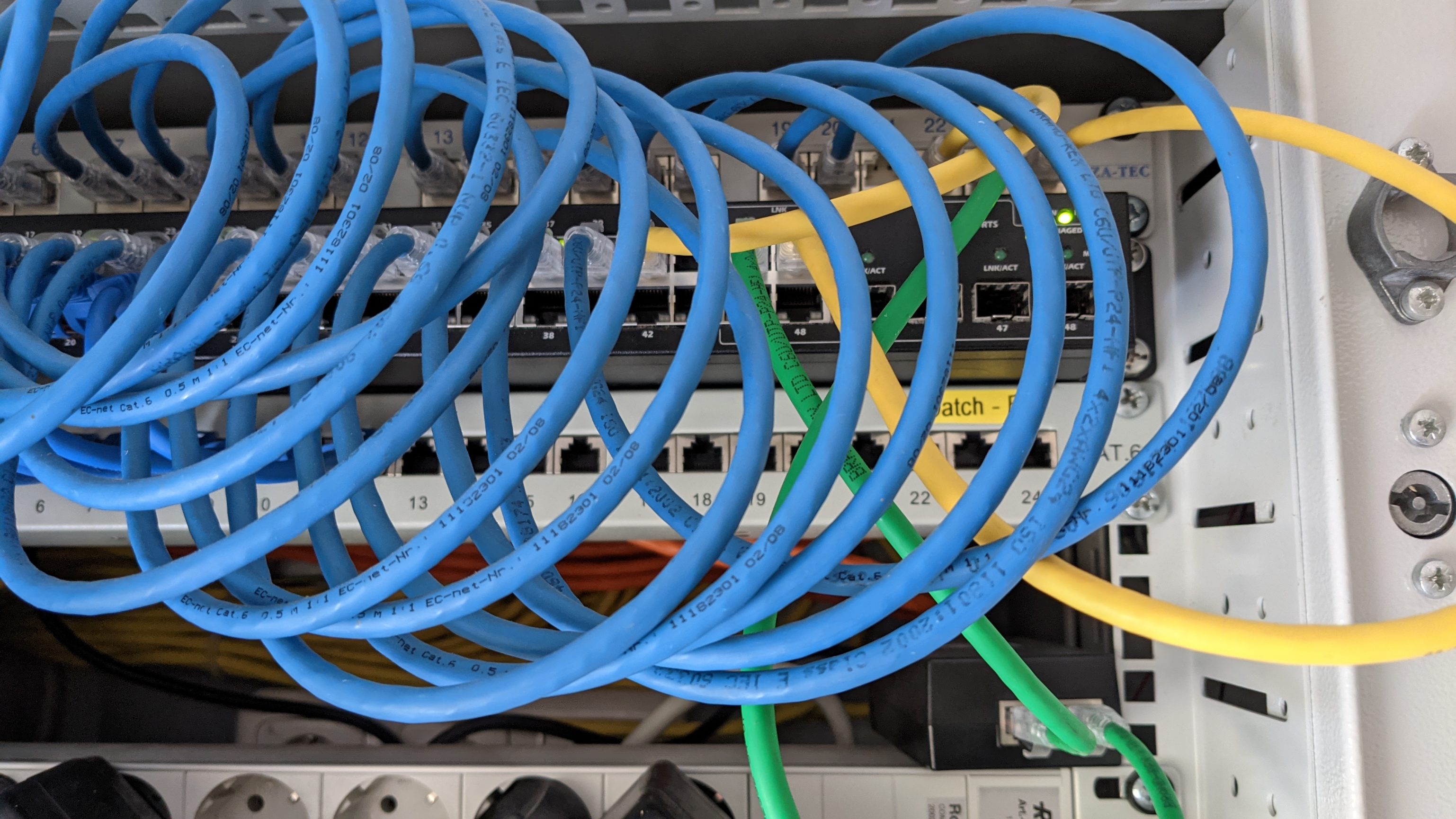
The phones wind up having two cables—one for data, and one for power. The Wi-Fi device needs an adapter between it and the switch that adds power to the line. The situation leads to inefficiencies in power and management. Inefficiency … gross.
In something of a reversal, several Wi-Fi access points have lost their ability to detect that power is being provided to them by the switch. The chip doing that job has failed, I suppose, but the rest of the device still works. As a result, I’ve needed to add adapters to their lines and “force feed” them.
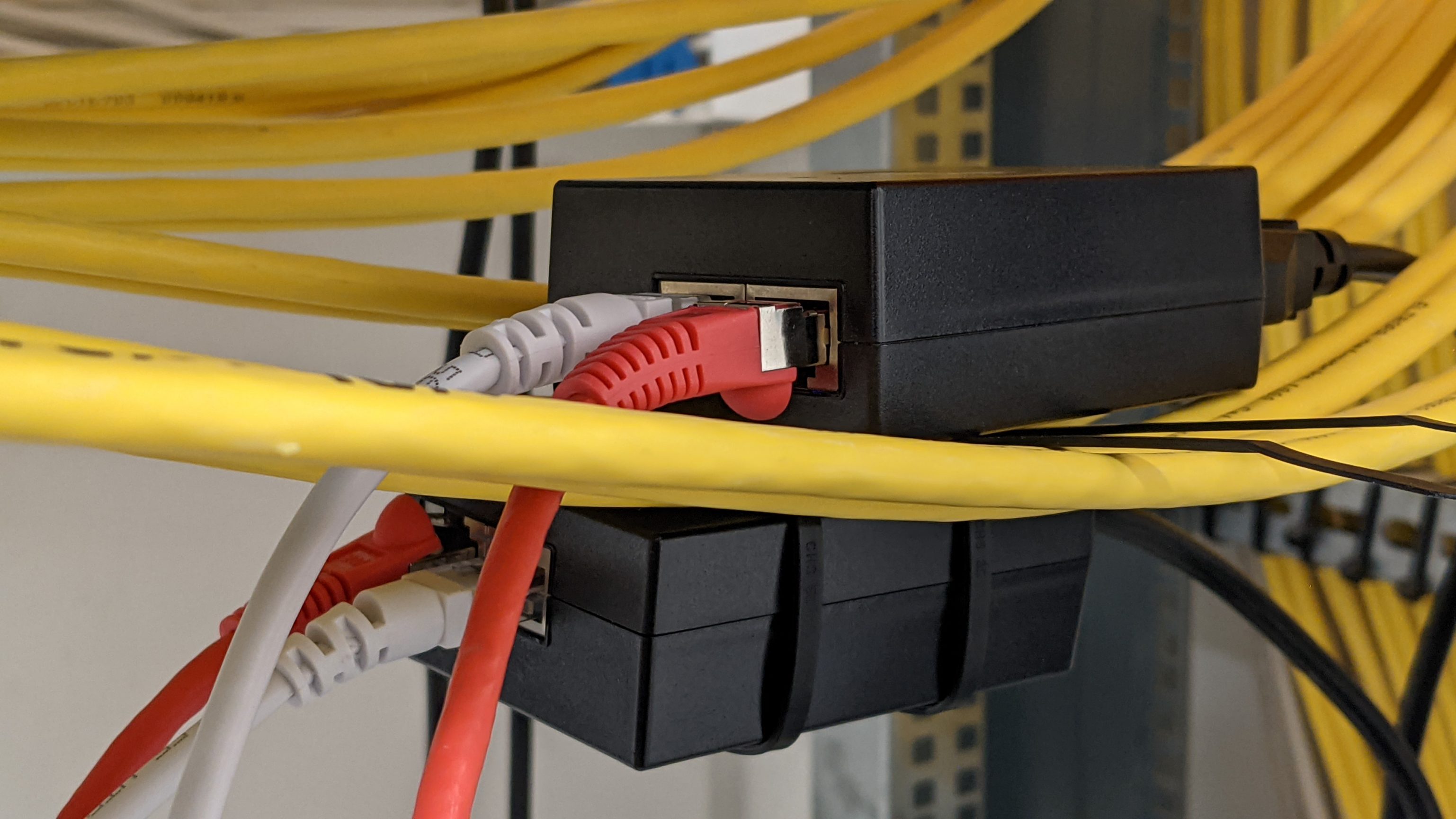
These “Power over Ethernet” adapters add power to the data cables. 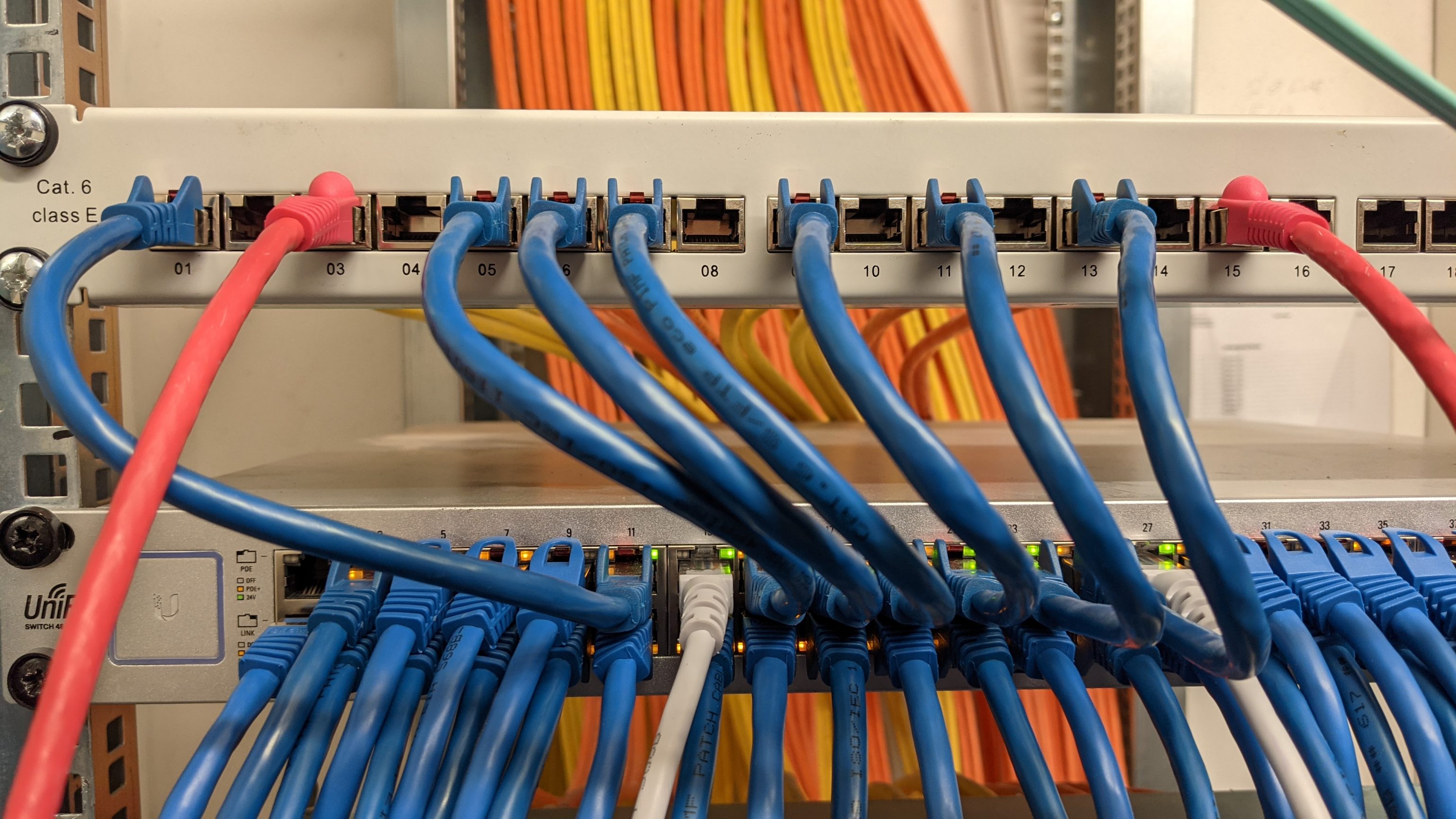
The white data cables lead to the adapters, and the red ones to the Wi-Fi. With power.
Again, this is an inefficient situation, but at least I can work around the deficiencies. I ordered replacement equipment back in January, but it took months for much of it to arrive. The very last devices in the order should come this week. Once again, the shortage is to blame.
The last mention for power takes us outside. With increasing frequency, we have guests coming to the conference center with electric cars. To our mutual benefit, we have installed a charging station in the parking lot.
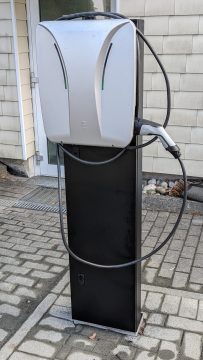
As with almost everything these days, the station needs an internet connection in order to communicate with whatever system is managing access and billing. That’s why I’m involved. You know, I never thought that I might work at a filling station one day. 😉 Have I mentioned the global supply chain problems? Yes, they affect this project, too: the charging station in the photo is an interim model delivering juice until the model we ordered is back in stock.
These situations made me think of Jesus’ words in John 15:1-8. Among those are these:
“Yes, I am the vine; you are the branches. Those who remain in me, and I in them, will produce much fruit. For apart from me you can do nothing.“
John 15:5, NLT
Without clean, constant power from the UPS, the servers turn off. Without the right switch or adapter, the Wi-Fi drops out. Without a charging station, the electric car will just sit in the parking lot.
Jesus is the source of power for the one who believes—and who stays connected. His power is pure, his power is eternal, and his power is always provided in the right manner and measure. He has no supply problems. You simply cannot go wrong by connecting to him.
Our service to Wycliffe is powered in part by people whom God has empowered to give and to pray. Are you one of those people? Katherine and I are grateful to you for being a part of our power grid! I’ll sign off now with an excerpt of the blessing given in Hebrews 13:20-21:
May he produce in you,
Hebrews 13:21, NLT
through the power of Jesus Christ,
every good thing that is pleasing to him.
